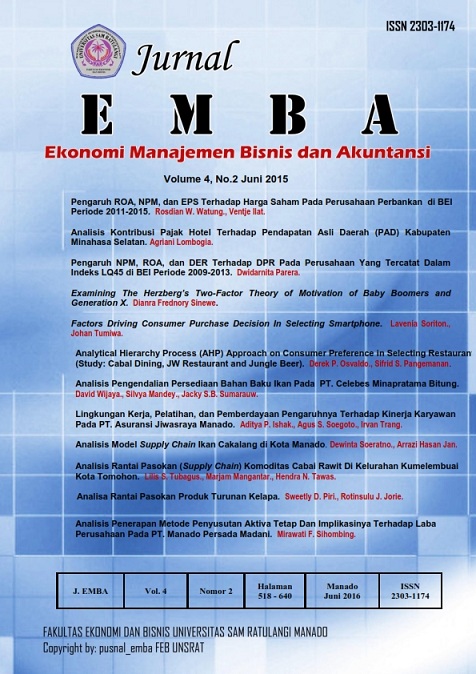EXAMINING THE HERZBERG’S TWO-FACTOR THEORY OF MOTIVATION OF BABY BOOMERS AND GENERATION X (CASE OF RSU. PROF. DR. V. L RATUMBUYSANG MANADO)
DOI:
https://doi.org/10.35794/emba.4.2.2016.13111Abstract
Government of Indonesia aims to achieve mental revolution of both the society and the public servants (ASN) and therefore placed health sector as one of its priority programs. The aim of this study is to analyze whether or not there is significant difference between Baby Boomers and Generation X in Herzberg’s Two-Factor theory of motivation of ASN in a public hospital. This research is comparative type of research which uses primary data obtained through questionnaires and uses Independent Sample t-Test analysis. The population observed is ASN in RSU. Prof. Dr. V. L. Ratumbuysang Manado who work closely to managerial area, with 50 respondents of Boomers and 50 respondents of Gen X as the sample size. The result of this study shows that both generations are having no significant differences, neither in Hygiene factor nor Motivator factor. However, to ensure ASN are motivated, the recommendations for the board of directors in Ratumbuysang hospital are holding training where Boomers and Gen X could be collaborated to exchange experiences of work, avoid no job dissatisfaction by applying job rotation, and should have sensitivity in recognizing talent and good performance.
Keywords: herzberg’s two-factor theory, motivation, baby boomers, generation X
